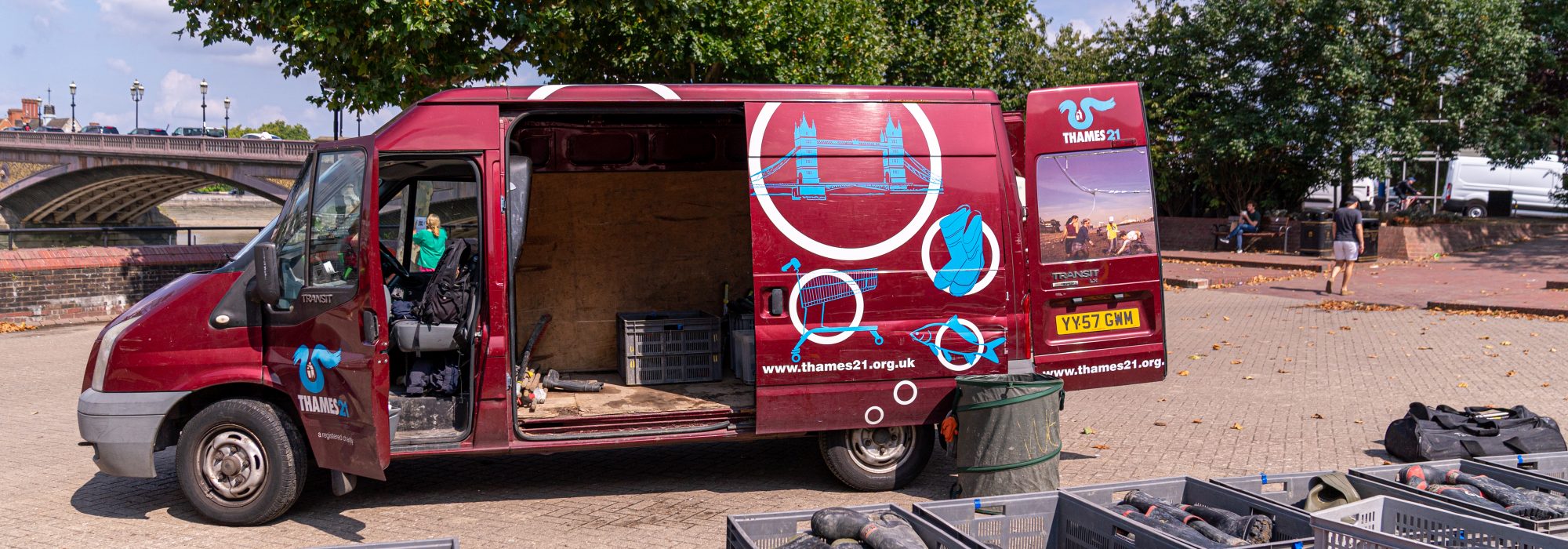Walking the talk – Reducing Thames21’s impact on the environment

Thames21 is an environmental charity with a mission to conserve and restore our waterways through community engagement and evidence-based action. Our committed staff and executives want to make sure we also ‘walk the talk’ when it comes to reducing our environmental impact on the natural environment. Therefore, we are (i) exploring ways to monitor our activities in relation to transport, energy and water use, procurement of goods and services and (ii) reflecting and acting to reduce our emissions and use of materials and energy as best we can. We have a dedicated Green Dream Team who has been looking at monitoring and reducing our environmental impact and providing best-practice recommendations to our staff.
In view of the (very) slow progress (see the recent COP27 conference’s outcomes, which did not include explicit measures to drastically reduce fossil fuel use) in government policies to reduce greenhouse gas emissions globally and at a national level, businesses and all other organisations must do their part to directly contribute to reducing humans’ footprint on the biosphere (see our COP26 manifesto). Key highlights on Thames21’s actions include monitoring greenhouse (GHG) emissions from our vehicles and compiling (and encouraging all staff to implement) a list of practical recommendations to reduce our individual impact on the environment.
We endeavour to apply this ethos across Thames21’s activities from small changes like swapping out paper for laptops when notetaking, to investments on the fuel-efficiency and sustainability of our vehicle fleet. Simple changes such as reducing email quantity by deleting obsolete emails and attachments, and predominantly communicating via Microsoft Teams messages can tangibly reduce carbon emissions from global data storage.
Where possible, old laptops and monitors will be donated to Catbytes Community, or other similar organisations that refurbish and distribute old tech to digitally excluded people in London. Staff members will be mostly supplied with smartphones from prior staff members or refurbished phones to reduce the GHG emissions caused by the production of new ones.
As well as adopting a hybrid working scheme which enables employees to partly work from home to reduce commuting emissions, we will further promote the Cycle to Work Scheme, supporting staff in buying a bicycle to replace car and work van journeys. Efficiently setting multiple in-person meetings within the same day will further reduce multiple days of commuting.
We strive to use water, paper, and other materials sparingly. In keeping with Thames21’s projects on plastic litter reduction along the Thames and Mersey rivers and following the results of the ‘Plasticblitz’ we will lead by example, identifying areas where our own usage can be reduced. Reusable cups have been and will be used for volunteer events and conferences and bulk purchases of refreshment items will be made to reduce total packaging used. Our staff is encouraged to bring lunch from home to reduce takeaway packaging, replace single-use plastic bottles and packaging with reusable items, or non-plastic items. Our individual actions are a drop in the ocean but, put together, can help significantly reduce our own impact on waterways and the natural environment.
